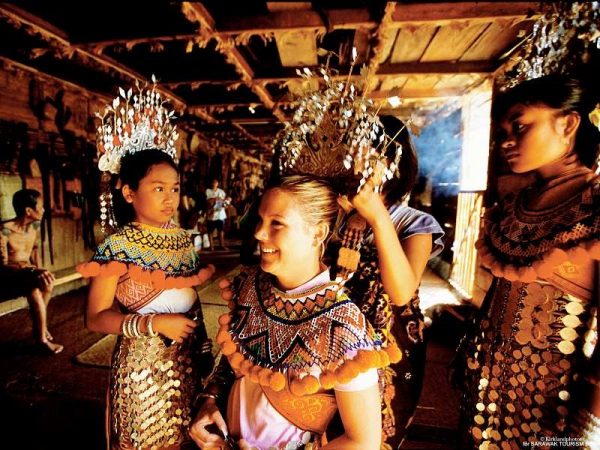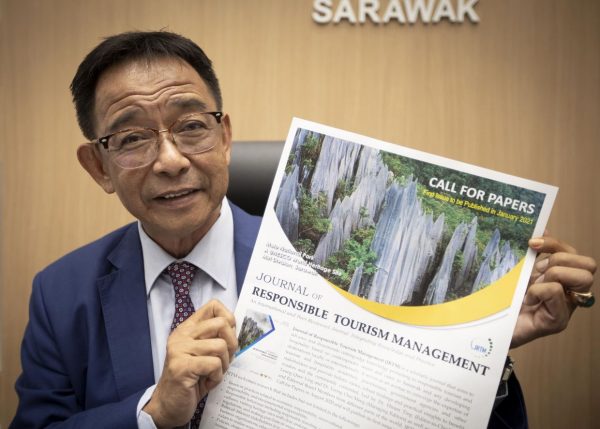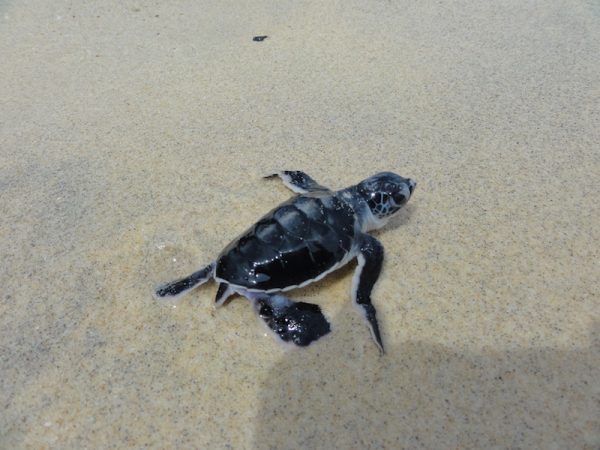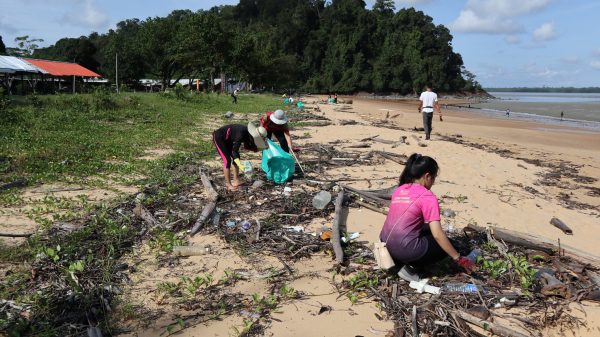
Tourist experiencing Sarawakian longhouse hospitality & culture.
Photo Credit: www.amazingborneo.com
Your flights and accommodation are booked. Your bags are all packed. Your travel documents are ready. It is now time for that long-awaited vacation!
But wait, as soon as you arrive at your destination, your normal behaviour is all over the place and you start behaving in a manner that does not reflect the very essence of travel. Whether intentionally or otherwise, you feel and/or act this way out of excitement or even desperation to go on holiday; so much so that you forget you have a role as a responsible traveller.
First of all, how should you act as a responsible traveller, and what does responsible tourism even mean? There seems to be an overlap in an understanding between sustainable tourism and responsible tourism. Although both concepts foster the importance of creating a positive economic, social and environmental impact on a particular travel destination, the former involves the actions of the industry’s stakeholders on a more macro level.
Responsible tourism on the other hand, emphasises on the actions of individuals and also groups such as tour operators and hoteliers, to make the tourism industry a more sustainable one. For the most part, to travel is to have a journey where we begin in one place and end in another. More importantly, as responsible travellers, it is about opening our minds to the world and its inhabitants, and ultimately, to experience a meaningful journey as a whole.
Picture this scenario. You are strolling along the streets of a village, when you spot a few elderly men playing checkers at a roadside stall. They are laughing at each other’s jokes while sipping steaming cups of locally brewed coffee and eating tumpik (sago pancake) dipped in a sweet ‘gula apong’ sauce. You decide to join them at the stall, and by the end of the day, you tell yourself that it had been one the best moments in your travels. Not only did you support a small, local business, you had a wonderful taste of a local dish, a memorable time chatting with the locals and even playing several rounds of checkers with them (despite losing them all)! Now this, is an example of how responsible tourism works.
It is really about benefiting ourselves and any local communities with which we engage when we travel. To really understand a culture, make the most of the time you spend with communities and become an active participant in their activities. Now picture another scenario. You are visiting an Iban longhouse to have a better understanding of their culture, and the host serves you a traditional delicacy cooked by a few members of the longhouse. This is without doubt a rewarding experience, but not as rewarding as actually cooking the dish together with them. Get the difference?
You will have a more magical experience when there is connection and engagement with local communities. Being a responsible traveller is also as simple as learning their language, exchanging stories with them or even practising good manners and hygiene when visiting their homes. When we are more respectful towards their values, and take the initiative to be culturally aware at all times, it could certainly strengthen our connection and relationship with the local communities better.
A good tip is not to generalise or be judgemental. What you believe is culturally right for you might be the opposite for them. Stereotyping is a thing of the past – you will not be able to truly have a meaningful travel if you remain prejudiced and narrow in your views and perceptions.
Travel has never been as accessible, inexpensive and easy as it is today, to the extent that there has been a continuous rise in the number of tourists globally. While the Covid-19 pandemic has had a massive impact on international travel in 2020, the long-term positive growth of the tourism industry is likely to continue.
In order for responsible tourism to really work, every member of society has a part to play. To be considered responsible travellers, we must do all we can within our capacity to make a positive impact in each of the destinations we travel to. Even in a Covid-19 environment, if we follow safety tips and precautions, we can still travel safely and confidently from West Malaysia to Sarawak and its wide-open spaces.
Undeniably, when more people travel, it has a profound impact on the environment, local communities and the world’s resources. For this very reason, responsible tourism has an increasingly important role to play in curtailing the undesirable impact of mass travel, which include for example environmental stress, overcrowding, and even culture disrespect.
In recognition of this, the Government of Sarawak has taken the initiative to launch the Journal of Responsible Tourism Management, which was aimed at publicising information on responsible tourism to a global audience. Various awareness programmes have also been introduced to urge travellers to act more responsibly when visiting Sarawak.

State Tourism, Arts and Culture Minister, Datuk Abdul Karim Rahman Hamzah launched the Journal of Responsible Tourism Management in Kuching on 10 August 2020.
Photo Credit: https://www.thestar.com.my/news/nation/2020/08/10/new-journal-on-responsible-tourism-management-to-be-published-in-sarawak
Responsible tourism, specifically in Sarawak, focuses on the creation of value around its unspoilt forest habitats. There are several things that you can do in support of this, for example, you can stay in communal longhouses during your travel and offer assistance in the running of day-to-day activities. If you have the means, you can also contribute funds for the betterment of the community and for conservation purposes. The Ulu Ai Project organised by Borneo Adventure (which won the PATA Gold Award), is a community-based tourism initiative which allows you to experience local lifestyle at the Nanga Sumpa Iban Longhouse.
As a responsible traveller, look out for wildlife sanctuaries and rescue centres and avoid visiting zoos or places that offer animal entertainments. The Sarawak Forestry Corporation responsible for Sarawak’s sustainable forest management and conservation, has been actively organising activities to the effect. The Sea Turtle Conservation Programme for example, is a programme that calls for participation in turtle conservation at the Talang-Talang Besar Island. There is also the ‘Heart2Heart’ Orangutan Volunteer Programme that allows you to actively participate in orangutan
rehabilitation at the Matang Wildlife Centre and Semenggoh Wildlife Centre.

A baby turtle making its way back to sea after hatching from its nest.
Photo Credit: https://www.sarawakforestry.com/parks-and-reserves/talang-satang-national-park/
A fundamental aspect of responsible tourism is that it is also an avenue for travellers with disabilities – physical, sensory or cognitive – to still be able to enjoy their travel destinations.
In support of this, Diveheart offers scuba diving programmes for disabled children, adults and veterans at the Premier Marine Scuba, Kuching in hopes that the scuba diving activities could provide them with therapeutic value, both in the physical and psychological sense.
Finally, responsible tourism is equivalent to keeping the environment healthy and clean at all times. Do not litter while visiting tourist spots, and incorporate ‘green initiatives’ in/during your travels. Consistent with the UN Sustainable Development Goals, the Rainforest World Music Festival is also aligned with greening initiatives such as sustainable procurement and food composting in the running of its event.

Eco-Tourism volunteers cleaning up the beach at Pasir Pandak.
Photo Credit: https://www.facebook.com/sarawakecowarriors/
Why don’t you tell us some of your own personal experience as a responsible traveller, and share some photos on STB’s social media so that you can encourage others to do the same? Also, tell us your favourite destinations in Sarawak where travellers can actively contribute and/or participate in activities relating to responsible tourism.
Before entering Sarawak, you are required to complete an e-health declaration form. Make sure you do submit the form
at least 12 hours before your entry. To find out more about this and other related information, click here.